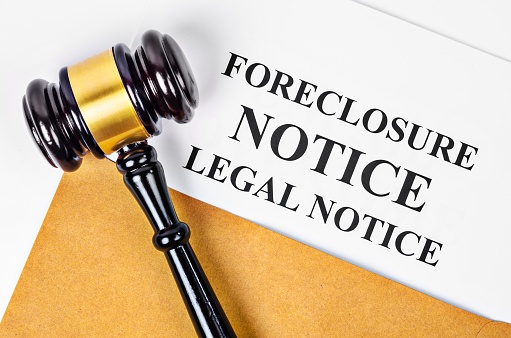
Under Real Property Law (“RPL”) Section 320 (“Certain deeds deemed mortgages”), “[a] deed conveying real property, which, by any other written instrument, appears to be intended only as a security in the nature of a mortgage, although an absolute conveyance in terms, must be considered a mortgage…” In In Re The First Union Baptist Church of the Bronx, the United States District Court for the Southern District of New York reversed a decision of a Bankruptcy Court Judge, reported at 572 B.R. 79 and at 2017 Bankr. LEXIS 2189, holding that a deed in lieu of foreclosure, recorded pursuant to the terms of a negotiated settlement agreement (the “Agreement”) approved by a different Bankruptcy Court Judge since then retired, violated Section 320, was an impermissible penalty, and was therefore void.
After a foreclosure sale was scheduled, the borrower, the First Union Baptist Church of the Bronx (the “Church”), filed for bankruptcy under Chapter 11 of the Bankruptcy Code. After extensive negotiations, the Church and TD Capital Group LLC (“TD Capital”), the holder of the mortgage by assignment, entered into an Agreement pursuant to which a deed in lieu of foreclosure would be executed and placed into escrow with TD Capital, to be released and recorded if the Church defaulted in its obligations under the Agreement. After the Church defaulted in making a monthly payment for the use and occupancy of the property required under the Agreement, the deed was released from escrow and recorded.
The District Court, holding that the release of the deed from escrow and its recording did not violate RPL Section 320 and was not an unenforceable penalty, reversed the Bankruptcy Court Judge’s decision, vacated the judgment to the extent that it set aside the deed, granted summary judgment to the appellants, and dismissed the adversary complaint. As to the claim that the deed violated Section 320, the District Court found that the conveyance was not a mortgage but that it was
“part of an extensively negotiated, judicially-ordered settlement… [which] laid out a comprehensive plan for extending the time in which [the Church] might be able to retain the property, despite the fact that a judgment of foreclosure had already been obtained…Moreover, the terms of the Agreement themselves are not clearly mortgage related. The payments [to be made by the Church under the Agreement] were termed ‘use and occupancy payments’, not mortgage payments, they were not related to the interest rates, and their payment did not affect the total [of] $1,500,000 owed to TD”.
As to the claim that the transfer of title by the deed in lieu was an unenforceable penalty, the District Court found that “all the facts and circumstances at the time of the Agreement support the Deed Transaction as [being] proportionate to TD’s potential damages”. When the Agreement was entered into, “the property value was likely close to the value of the compromise amount ($1,500,000) [the amount agreed to be paid by the Church to satisfy its obligations under the mortgage loan] though, in all likelihood, even lower”. The District Court’s decision on February 7, 2018 in Case Nos. 17-cv-7184 and 17-cv-7199, is reported at 2018 U.S. Dist. LEXIS 20669 and 2018 WL 770401.

